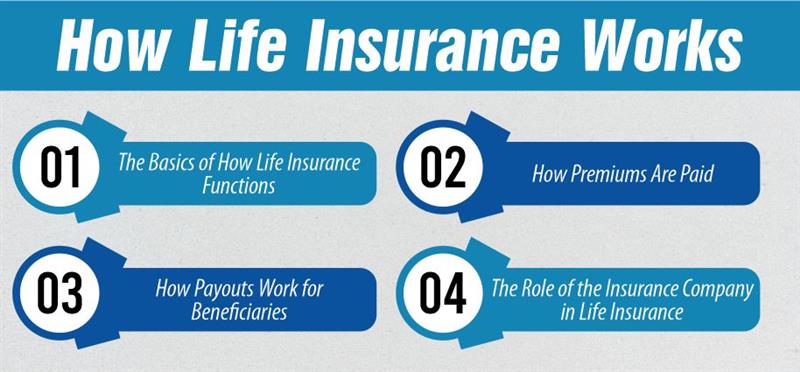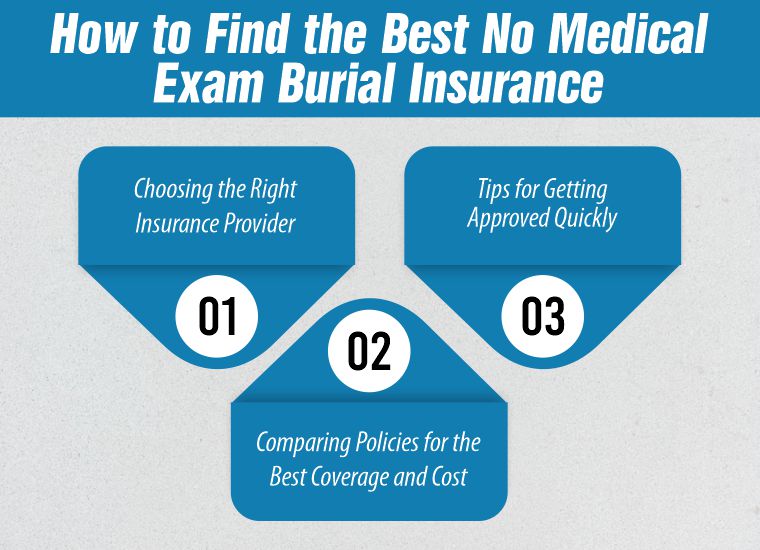Last Updated on: April 7th, 2025
Reviewed by Kyle Wilson

Life insurance is an essential tool for protecting your loved ones financially in case of an unexpected event. It provides a safety net for your family, helping cover expenses like funeral costs, debts, and living expenses when you’re no longer around. However, many people are unsure about how life insurance works or what type of policy is best for their needs. In this guide, we’ll break down what life insurance is, how it works, and the different types available, so you can make an informed decision on securing your family’s future.
Get Free Quotes
Customized Options Await
Life insurance is a vital financial tool designed to offer protection and peace of mind for both you and your loved ones. Whether you’re looking to secure your family’s future, cover outstanding debts, or leave a financial legacy, life insurance can play a key role. By providing a death benefit to your beneficiaries, life insurance ensures they are financially supported if something happens to you.
Life insurance is a financial product that provides a payout to your beneficiaries upon your death. This payout, known as the death benefit, is typically used to cover funeral expenses, outstanding debts, and living costs for your family. Life insurance is designed to protect your loved ones from the financial burden that may arise in the event of your passing, ensuring they are financially secure even after you’re gone.
Life insurance plays a crucial role in maintaining your family’s financial stability. Without it, your loved ones may struggle to manage daily expenses, mortgage payments, or medical bills after your death. It acts as a safety net, offering peace of mind that your family won’t have to bear the financial strain of losing you. Having the right life insurance in place ensures that your loved ones can maintain their quality of life and stay on track with their financial goals even in your absence.
When choosing life insurance, it’s important to understand the different types available, as each one offers unique features to fit different needs and budgets. The right type of life insurance depends on your goals, age, health, and financial situation. Below, we’ll explore the most common types of life insurance to help you make an informed decision.
Term life insurance is a straightforward and affordable option that provides coverage for a specific period, typically ranging from 10 to 30 years. If the policyholder passes away during the term, the beneficiaries receive a death benefit. Term life insurance is ideal for those who need coverage for a set period, such as until their mortgage is paid off or children are financially independent. It offers the benefit of lower premiums compared to permanent life insurance but does not build cash value.
Whole life insurance is a permanent policy that provides lifelong coverage as long as premiums are paid. This type of insurance includes an investment component, where part of your premium is saved and accumulates cash value over time. Whole life insurance tends to have higher premiums than term life, but it offers stability and the ability to borrow against the cash value in the future. This type is ideal for those seeking long-term financial security and a way to leave a legacy.
Universal life insurance combines the lifelong coverage of whole life insurance with more flexible premiums and death benefits. It also accumulates cash value, but the amount you pay in premiums can vary, allowing for greater flexibility. The cash value grows based on interest rates set by the insurance company. This type of policy is ideal for those who want more control over their life insurance and are looking for flexibility with coverage and premiums.
Final expense insurance is specifically designed to cover end-of-life costs such as funeral expenses, medical bills, and other debts. It typically offers a smaller coverage amount compared to other life insurance policies but is easier to qualify for. It’s an excellent choice for seniors or those who want to ensure that their loved ones are not burdened with the costs of their funeral and final expenses. Final expense insurance is often affordable and doesn’t require a medical exam, making it a convenient option for many individuals.
Understanding how life insurance works is essential to making informed decisions about coverage. Life insurance provides a safety net for your loved ones by paying a death benefit if you pass away during the policy term. Below, we’ll break down how life insurance functions, from premiums to payouts, and the role of the insurance company.
Life insurance works by providing financial protection to your family or beneficiaries when you die. In exchange for regular payments (premiums), the insurance company agrees to pay a lump sum (death benefit) to your beneficiaries upon your passing. The amount of coverage and the type of policy you choose will determine the death benefit and premiums. Life insurance ensures that your loved ones are financially supported, even in your absence.
Premiums are the payments you make to keep your life insurance policy active. These payments can be made monthly, quarterly, or annually, depending on the policy terms. The amount of your premium is influenced by several factors, including your age, health, lifestyle, and the type of policy you have. Term life policies usually have lower premiums, while whole life policies, which offer permanent coverage and cash value, tend to have higher premiums. Paying your premiums on time is crucial to keeping your coverage in force.
When you pass away, your beneficiaries will receive the death benefit as long as the policy is in force and premiums have been paid. The payout can be used for any purpose, including funeral costs, medical bills, or to replace lost income. The beneficiary must file a claim with the insurance company, which will review the policy details and, upon approval, issue the payout. The process is typically straightforward, but it’s important to ensure the beneficiaries are clearly named and informed of the policy’s terms.
The insurance company plays a crucial role in managing your policy and ensuring that it is properly funded. They calculate premiums, determine policy terms, and provide the death benefit to your beneficiaries when you pass away. Insurance companies also handle the underwriting process, assessing your risk level based on factors like age, health, and lifestyle, which influences the premium amount. Choosing a reputable and financially stable insurance company is important to ensure they can fulfill their obligations when the time comes.

Choosing the right life insurance policy is a significant decision that depends on your personal circumstances, financial goals, and the protection you need for your loved ones. Understanding your options, evaluating coverage needs, and considering key factors will help guide you in selecting the policy that best fits your situation.
Before selecting a life insurance policy, it’s important to understand how much coverage you need. Consider factors like your income, outstanding debts, funeral costs, and future expenses, such as your children’s education. Life insurance should provide enough financial support for your family in case of your unexpected death. Think about the long-term financial security you want to leave behind and whether your family will be able to maintain their lifestyle without your income.
When evaluating life insurance policies, think about the types of coverage available, such as term life, whole life, or universal life insurance. Compare the different features, including the cost of premiums, policy duration, and any additional benefits like cash value accumulation. Make sure the policy you choose aligns with your long-term goals and budget. Consider whether you prefer temporary coverage (term life) or lifelong coverage (whole life) to determine which policy best suits your needs.
Several factors should influence your decision when choosing a life insurance policy. These include your age, health condition, and financial stability. Younger and healthier individuals often qualify for lower premiums, while those with existing health conditions may face higher rates or limited options. Additionally, consider the financial strength of the insurance company, as you want a provider that can honor its promises. Review policy terms, such as waiting periods, exclusions, and the potential for premium increases, to ensure the policy provides the right protection for you and your family.

Life insurance provides many benefits, primarily offering financial security for your loved ones in case of your death. It ensures that your family members will not have to bear the financial burden of your passing. Life insurance can also serve as a financial tool to help achieve long-term goals, such as building cash value and protecting your legacy.
One of the key benefits of life insurance is the financial protection it offers to your family. In the event of your death, life insurance ensures that your loved ones have the financial support they need to cover immediate expenses, like funeral costs, as well as ongoing expenses, such as mortgage payments, bills, and education costs. This protection can help them maintain their standard of living without relying on savings or taking on debt.
Knowing that your family will be financially secure after you’re gone brings peace of mind. Life insurance gives you the confidence that your loved ones will have the resources to carry on without facing financial hardship. It offers a sense of comfort, knowing that you’ve planned ahead and provided for their future, even if you’re no longer there to support them.
Certain types of life insurance, like whole life and universal life, offer the additional benefit of building cash value over time. A portion of the premiums you pay goes into a savings component, which grows tax-deferred. This cash value can be accessed during your lifetime through loans or withdrawals, providing you with flexibility for financial emergencies or other needs. This feature makes permanent life insurance policies a good option for individuals looking for both protection and a savings element.

Life insurance premiums vary depending on several factors. Insurers assess various aspects of your personal situation to determine how much you’ll pay for coverage. By understanding these factors, you can make more informed decisions when selecting a policy.
Your age and health are two of the most significant factors influencing your life insurance premiums. The younger and healthier you are when you purchase a policy, the lower your premiums are likely to be. This is because younger individuals typically pose a lower risk to insurers. If you have pre-existing conditions, your premiums may be higher, as insurers might consider you a higher risk. Getting life insurance at a younger age and maintaining a healthy lifestyle can help reduce costs.
The type of policy you choose and the amount of coverage you need will also affect your premiums. For instance, term life insurance typically has lower premiums compared to whole life insurance, as it only covers you for a specific period. Additionally, the higher the coverage amount you select, the higher your premiums will be. It’s important to balance the level of coverage with what you can comfortably afford.
Your lifestyle choices and occupation can also impact your life insurance premiums. If you engage in risky activities, such as smoking, heavy drinking, or extreme sports, you may face higher premiums due to the increased risk. Similarly, jobs that involve dangerous work, such as construction or mining, may lead to higher premiums because of the higher likelihood of accidents. Maintaining a healthy lifestyle and working in a lower-risk profession can help keep your premiums lower.
Choosing the right life insurance policy is a crucial step toward securing the financial future of your loved ones. Understanding the different types of policies, the factors that affect premiums, and how life insurance works can help you make an informed decision. Life insurance provides peace of mind by ensuring your family is financially protected in case of an unexpected event. Whether you’re planning for the future, covering debts, or leaving a legacy, selecting the right coverage is key to ensuring you’re prepared for life’s uncertainties.
The amount of life insurance coverage you need depends on your financial obligations, such as debts, mortgage, and living expenses, as well as your future financial goals. A common rule of thumb is to have coverage that is 10 to 15 times your annual income.
Yes, you can make changes to your life insurance policy after purchasing it. Most policies offer options to increase or decrease coverage, change beneficiaries, or even convert a term policy to a permanent policy. It's important to review your policy periodically and make adjustments if your life circumstances change, such as marriage, having children, or experiencing financial shifts.
Even if you are single or don't have dependents, life insurance may still be beneficial. It can help cover any outstanding debts or funeral expenses, ensuring that your loved ones are not burdened with these costs.
The cost of life insurance varies based on factors like age, health, policy type, and coverage amount. Term life insurance tends to be more affordable than permanent life insurance. Younger, healthier individuals generally pay lower premiums.
Senior Writer & Licensed Life Insurance Agent
Iqra is a dynamic and insightful senior writer with a passion for life insurance and financial planning. With over 8 years of hands-on experience in the insurance industry, Iqra has earned a reputation for delivering clear, actionable advice that empowers individuals to make informed decisions about their financial future. At Burial Senior Insurance, she not only excels as a licensed insurance agent but also as a trusted guide who has successfully advised over +1500 clients, helping them navigate the often complex world of life insurance and annuities. Her articles have been featured in top-tier financial publications, making her a respected voice in the industry.

Burial Senior Insurance provides information and services related to burial insurance for senior citizens, including policy options and end-of-life support services.
Copyright © Burial Senior Insurance 2025. All Right Reserved.

Get Free Life Insurance Quotes